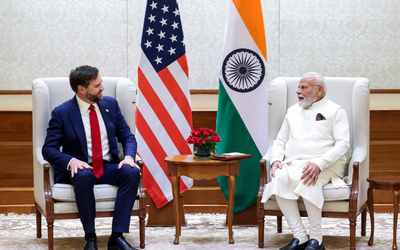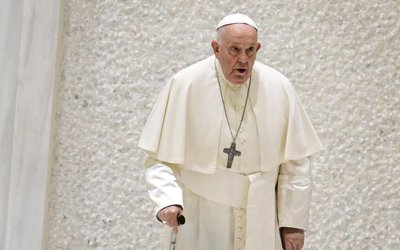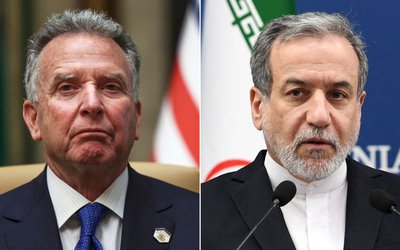
Insurance policy
Bleak economic scenario, if not Damocles’ sword of ‘White Paper’ presented by Finance Minister there are no concrete indications on how the government would tackle important challenges. This could be a political insurance policy’ in case government fails to address the challenges. Clearly, government had no economic blue-print on policy strategies in place. Whatever the case, it is no exaggeration economic growth outlook is bleak and inspiring.
Bruised relationships and India visit
Expecting PM Oli’s India visit would instantly heal badly bruised relationship looks fable. It may be one thing to win an election and quite another thing to build divided nation in politically polarized population. Given the deep divides between the two countries during Oli’s first term in the office and his party’s continued anti-India raucous during election campaign are still in everyone’s memory. Bridging deep and wide gaps on either side of the aisle with a sudden outburst of trust for there is no convergence of interests is premature. Political assurances from India could not be expected to shower with investment funds while being seen capitulating under Nepal’s demand for ‘equal status ‘without meaningful progress on unresolved political issues; most notably those culminated into India’s transport blockade of Nepal.
India’s uncharacteristic one to one gesture during India visit, multiple telephone calls to Oli prior to visit and surprise advance visit of Indian Foreign Minister to Kathmandu were a sort of diplomatic coup de grace for such moves were unexpected in Nepal. PM Modi’s moves not only surprised the nation and political elites and bureaucrats were puzzled. India’s pre-emptive moves were timely, smart, and beyond symbolism. Let’s hope, PM Oli understands the significance of this, and develops and enhances proximity into a productive working relationship between the two proud nations.
Despite claims of a breakthrough in mending relationships it is unclear if trust deficits have been restored and adequately bridged to a level both establishments are comfortable to work with. The question is - can the fractured relationship be repaired over night? Although India visit has certainly produced overwhelming reactions with no discernible results. Miracles do happen in Nepal though! PM Modi has made smart moves and openly displayed friendly gestures to PM KP Oli. If anything turns sour in future it would squarely fall on PM Oli’s lap. At the international level, the stakes now are very high.
Other’s experience and policy relevance to Nepal
Despite being the closest US ally in Asia, President Duterte of the Philippines was not deterred forging economic alliance with China while running, side by side, bitter dispute over sovereignty over South-China Sea claims. President Duterte recently said he was be-friending with President Xi for China now is rich with money to spend. His realistic but pragmatic approach is proving beneficial with China’s increased investments in infrastructure development, real property, and tourism sectors without compromising its traditional partnerships with USA.
Interestingly, Duterte also forged bilateral relations with New Delhi and advancing opportunities for Indian investment in the country. Several Indian companies including Adani Green Energy Ltd, Inter-globe Air Transport/Technologies, KG Information Systems Pvt. Ltd and Hinduja Global Solutions have concluded letter of Intents in January 2018 with the Philippines. Global IT firms like Info-Sys, Wipro, and TATA have already made inroads in knowledge-based industry, automotive and retailing. This illustrates pragmatic approach of a popular leader’s desire for economic acceleration while crossing beyond traditional boundaries. Philippines’s economic diplomacy continues despite some domestic political controversies unabated. Recently, one senior Asian Development Bank expert was quoted by print media by alluding to this growth like a golden age in economic development.
Vietnam and Cambodia in Asia, Rwanda and Ethiopia in Africa have also adopted realistic pragmatic approach allowing former political enemies’ participation in development. These two Asian countries are driving ASEAN growth much faster rate than China and India. Being realistic and pragmatic is the only way forward for Nepal must grab all available opportunities without political prejudices and misgivings, and not get lost in transition. Stupid economics, it also matters in Nepal.
Problem in defining close relationship
Some observers and political pundits advocate relationships with China and India should be based on either "equi-distance" or "equi-proximity" or “balanced”. This implies absence of sincere relationship, neither close nor mature, nor historically strong or culturally close. We must not fall into fallacy leaving plenty of room to be desired. Mature relationship is based on frank and constructive engagement through open dialogues, but with excellent understanding of mutual interests, strengths, weaknesses, capabilities, and respect for each other.
Two economically powerful neighbors are our permanent neighbors. Both countries should be Nepal’s natural strategic partners for economic development. Government must endeavor to maintain trustworthy partnership and engage with them in development process by not playing India-China card with them for we are losing better economic future for our generation.
What did we do and what our neighbors did since the time Nepal became a democratic and republic nation could generate never-ending and passionate debate? It will lead nowhere to any ‘consensus’ – a political illusion of Nepali politics. Nepal lost excellent opportunities in our quest for “republicanism and federalism “as a nation and missed to see economic trends and opportunities sweeping the entire region and world. Surely, it takes two to tango for growing up in interdependent economic world.
We should stop blaming one another for we too have failed in many respects to see and recognize emerging challenges of political discourses and emerging economic forces. We are still lucky, and we should now tie-up with both neighboring acceleration of national economic programs. Bitter lesson of the past is that we should not be playing negative rhetoric, time and again, if we expect to maintain healthy relations. Instead, invite and involve them for participation in development streams and challenges.
We ought to maximize proximity advantage with clear articulation of each other’s interests, priorities and continue to build economic bonding, and maintain cultural and historical relations. Absence of this means we are failing to lead nation and manage economic sand take forward this nation with realistic and pragmatic strategies to the next level relevant to our time. Political leadership must look beyond ' politically narrow tunnel vision ‘without blocking realism and pragmatism. If otherwise it continues as usual, then economic well-being of citizens would remain a pipe-dream for long.

Kedar Neupane
He can be reached at Neupanek1950@gmail.com
- Talking About South Asian Diaspora Community And Its Economic Prowess In The USA
- Aug 23, 2023
- Talking About Growth Miracle And Emerging Quadripolar Economic Construct (Part – Two)
- Jul 28, 2023
- Talking About Growth Miracle and Emerging Quadripolar Economic Construct (Part – One)
- Jul 02, 2023
- Pseudo-Nationalism Is About Political Desperation And Sure Sign of Economic Collapse Context And Background
- Jun 19, 2023
- Realities In Conflict Of Interest And Challenges Of Combating Corruption In Nepal: PART -TWO
- Jun 08, 2023















